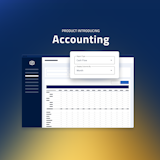The Framework for Starting Solid Rental Management
As you get started in residential real estate, create a foundation to succeed in your management. One way to lose money and increase liability is commingling personal and real estate activities. This article gives you the framework to take yourself from a naive landlord to a professional investor.
While there are many cost effective and simple ways to set up a better rental business, here are the top five:
#1 Email - free
I recommend creating a separate email address for your rental properties. This email account is used for interactions with agents, tenants, and others involved in your real estate assets.
While there are plenty of providers, I recommend Google to create a free email account (e.g. smithproperties@gmail.com). If you believe you won’t habitually check this account online, then take at least one of these steps:
- Set up the email account on your phone
- Forward the emails to your personal email
- Use mail clients (e.g. Apple Mail) to consolidate email accounts in one interface
#2 Phone number - free
You want to answer calls and set up your voicemail in a different way from your personal number. I recommend Google Voice, which is free with a Google account. You can forward all phone calls and SMS (text messages) to your phone. Some other beneficial features include:
- Calls and SMS in the US and Canada*
- Call screening
- Professional real estate voicemail
- SMS forwarded to your email
- Conference calls
*up to three hours in individual length per call, as of 05/23/2017
#3 Bank account -- free
Business and personal finances should be separated. A property-specific bank account makes it easier to track income and expenses and provide documentation to your tax accountant. Most major banks allow you to set up a free checking account. Even if the account is under your personal name, before creating your business entity, this account allows you to easily distinguish between business and personal finances. Furthermore, some States require an escrow account for the security deposit. I recommend that you check your State’s laws to understand whether or not this is required.
#4 Entity - worth every dollar
A tenant can slip on the floor and sue you. The upfront investment to set up an entity or get insurance for your rental properties is worth it. As one real estate lawyer told me, it’s not a matter of if you will get sued, it’s a matter of when. Rental properties have high risk and liability due to the legal environment and nature of the business. Our goal is to help prevent lawsuits from occurring with your rentals, but you also want to protect yourself personally via a business entity.
The first way to protect yourself is to set up a limited liability corporation (LLC) or a trust, where the property is listed under this entity. In many cases, the LLC will not be in your home state from a tax perspective. And, there are vehicles, such as Series LLCs, which can put multiple investment properties under one LLC.
The second way to protect yourself personally is through landlord insurance. Landlord insurance typically offers property and liability protection. Property protection covers the physical property of the home you are renting out, while liability protection may help you pay for another person’s medical bills or legal expenses if someone is injured on your property. Choosing a landlord insurance policy can give you added security in knowing your rental income is safe.
If you have not already, it is recommended to consult a real estate lawyer on the best way to protect yourself and your property.
#5 Software - worth every penny
Another way to mitigate risk is to implement property management software. It helps you track, record, and communicate the legal contract and the day-to-day with your tenants. Some features to make your rental business better:
- Rent reminders and automatic late fees: You want to instill a formal and professional accounting system that promotes abiding by the contract (incentivizing tenants to pay on time)
- State-specific lease documents: There is a reason that some leases are free online, and I don’t recommend using those documents
- Alerts and reminders on lease renewals: This allows you to get the renewal or termination ready before the lease end date
- Maintenance tracking: This serves as a way to track responses to maintenance, as well as documenting the items that have been fixed in the property
Try Hemlane for free and how software can make your rentals easier to manage!




